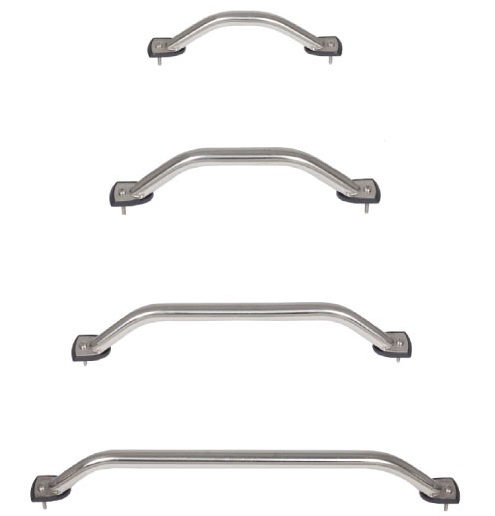What's the Best Material for Marine Watercraft Equipment?
When it involves marine boat hardware, selecting the ideal material is essential for making sure the safety and security, efficiency, and durability of your vessel. From cleats to hinges to fasteners, every element plays a vital duty in the general functioning of your boat. However with countless materials offered in the marketplace, exactly how do you identify the most effective one? Allow's study the details. Introduction to Marine Boat Equipment Marine watercraft hardware encompasses a large range of components that are necessary for the operation and upkeep of boats. These consist of whatever from navigation lights to deck installations to rigging equipment. Selecting the ideal material for these hardware products is extremely important to endure the severe marine environment, including direct exposure to deep sea, UV radiation, and constant movement. Significance of Choosing the Right Product The product made use of in marine watercraft equipment considerably affects its efficiency, long life, and maintenance needs. A poor choice of material can result in rust, structural failure, and security hazards, while the right product can enhance sturdiness, stand up to rust, and decrease maintenance initiatives and prices. hiever-metalworks.com to Think About When Selecting Marine Boat Hardware Material Resilience One of the key factors to consider when choosing boat hardware product is toughness. The material must be able to hold up against the rigors of marine problems, including exposure to deep sea, sunshine, and heavy tons. Deterioration Resistance Provided the harsh nature of the marine environment, corrosion resistance is important. The product should be resistant to rust, pitting, and galvanic deterioration brought on by the communication of different metals in deep sea. Stamina Marine equipment have to be able to stand up to high lots and anxieties without flexing, breaking, or deforming. The product must have sufficient strength to support the desired application, whether it's anchoring, rigging, or securing devices. Cost-effectiveness While top quality comes at a cost, it's important to take into consideration the total cost-effectiveness of the material. Elements such as first expense, maintenance needs, and life expectancy needs to be weighed against each various other to figure out the very best value for money. Typical Products Used in Marine Watercraft Hardware Numerous materials are typically utilized in aquatic watercraft equipment, each with its very own set of benefits and drawbacks. Stainless-steel Stainless steel is a prominent selection for marine hardware as a result of its exceptional rust resistance, strength, and aesthetic appeals. It is available in various qualities, with 316 stainless steel being one of the most ideal for aquatic applications. Light weight aluminum Aluminum is light-weight, corrosion-resistant, and reasonably affordable contrasted to stainless-steel. However, it may not be as solid as steel and can struggle with galvanic deterioration when in contact with different steels. Bronze Bronze is recognized for its remarkable deterioration resistance and durability, making it suitable for aquatic equipment. It also has a traditional visual charm, making it excellent for conventional or classic watercrafts. Plastic Plastic or polymer-based materials are acquiring appeal in aquatic equipment because of their deterioration resistance, light-weight, and price. Nevertheless, they might not be as strong or sturdy as metal options. Advantages and disadvantages of Each Product Stainless-steel: Pros – exceptional corrosion resistance, high strength, aesthetic charm; Cons – higher expense, susceptibility to hole corrosion. Aluminum: Pros – light-weight, corrosion-resistant, affordable; Disadvantages – lower stamina contrasted to steel, capacity for galvanic rust. Bronze: Pros – extraordinary corrosion resistance, resilience, timeless look; Cons – higher expense, much heavier than light weight aluminum.  Plastic: Pros – corrosion-resistant, lightweight, budget friendly; Cons – may lack toughness and toughness, susceptible to UV deterioration. Ecological Effect When picking boat equipment products, it's necessary to consider their environmental effect. Materials that are non-toxic, recyclable, and have minimal ecological footprint are more suitable to reduce harm to aquatic communities. Upkeep Tips for Different Products Each material calls for specific maintenance to extend its lifespan and ensure ideal efficiency. This consists of routine cleaning, lubrication, and examination for indicators of deterioration or damage. Adhering to maker recommendations and utilizing suitable cleaning and upkeep items are crucial for protecting the honesty of the equipment. Verdict Picking the very best product for marine watercraft hardware involves thinking about elements such as durability, corrosion resistance, toughness, and cost-effectiveness. Stainless steel, light weight aluminum, bronze, and plastic are among the most typical materials utilized, each with its own collection of advantages and disadvantages. By comprehending the qualities and requirements of different products, boat owners can make enlightened choices to make sure the security, integrity, and durability of their vessels.
Plastic: Pros – corrosion-resistant, lightweight, budget friendly; Cons – may lack toughness and toughness, susceptible to UV deterioration. Ecological Effect When picking boat equipment products, it's necessary to consider their environmental effect. Materials that are non-toxic, recyclable, and have minimal ecological footprint are more suitable to reduce harm to aquatic communities. Upkeep Tips for Different Products Each material calls for specific maintenance to extend its lifespan and ensure ideal efficiency. This consists of routine cleaning, lubrication, and examination for indicators of deterioration or damage. Adhering to maker recommendations and utilizing suitable cleaning and upkeep items are crucial for protecting the honesty of the equipment. Verdict Picking the very best product for marine watercraft hardware involves thinking about elements such as durability, corrosion resistance, toughness, and cost-effectiveness. Stainless steel, light weight aluminum, bronze, and plastic are among the most typical materials utilized, each with its own collection of advantages and disadvantages. By comprehending the qualities and requirements of different products, boat owners can make enlightened choices to make sure the security, integrity, and durability of their vessels.